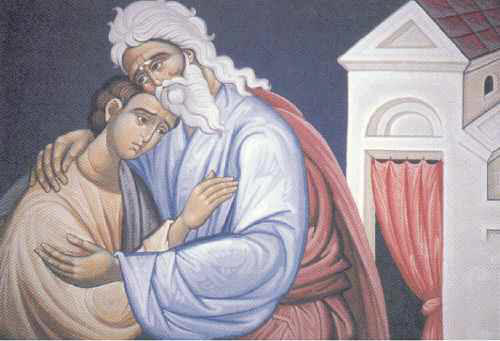The parable read today is usually called “the parable of the Prodigal Son,” who is at the center of the story. It might also be called “the parable of the Merciful Father,” who welcomes back his son, embracing him, restoring him to his position, declaring a joyous celebration without even seeming to hear or listen to his son’s confession or protestation. It might also be called “the parable of the Petulant Son,” who is grumpy and peeved at the father’s merciful loving kindness because he thinks that he himself is so much better than his brother. As we prepare for the Great Fast, do we see a pattern developing? The pharisee thought he was much better than the tax-collector, the older son thought he was so much better than his prodigal brother, but God overflows in love for all his creatures. Perhaps the real main purpose of the Great Fast is to turn from pride to humility, to begin to see others through the eyes of God, to overflow in love for others. Truly, what does it mean to be a Christian?
The return of the prodigal Son was marked by a great banquet given by the Merciful Father. We are all invited to that banquet, celebrated at every Divine Liturgy, where the food is not the “fattened calf” but the body and blood of our Lord, the only-begotten Son of the Father. How do we approach this banquet, in the humility of the son who acknowledges his unworthiness or in the pride of the older son, who objects to the presence of his weaker brother? The answer is what it means to be a Christian.
***
“Receive me now, Lord, as you once received the Prodigal. Open to me your fatherly arms, and in thanksgiving I will sing of your glory and goodness” (Sunday of the Prodigal Son Canon, Ode 1, troparion 3)
The parable of the Prodigal Son is also commemorated on the Second Sunday of the Great Fast, in the Canon of Matins, because the origin of the Triodion is from Palestine, where this Gospel was read on the Second Sunday.
Meditation by Archpriest David Petras
